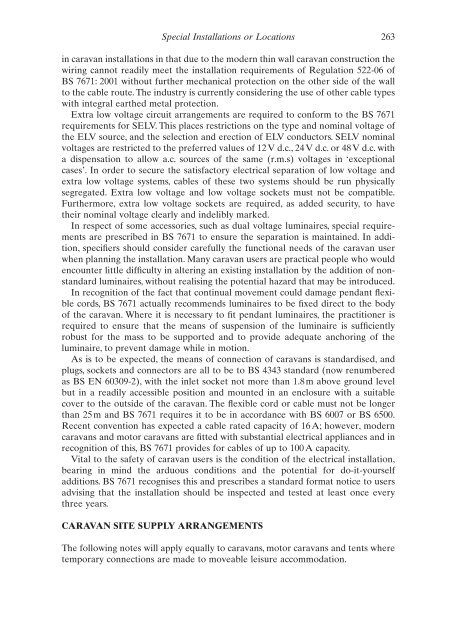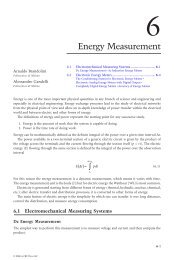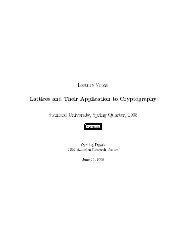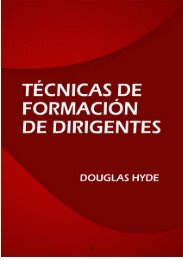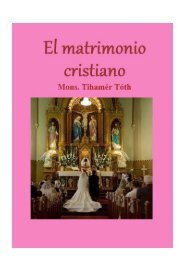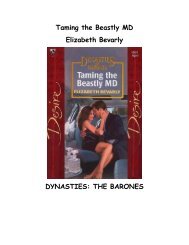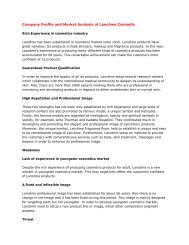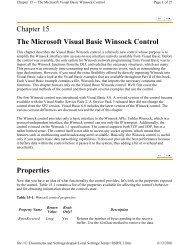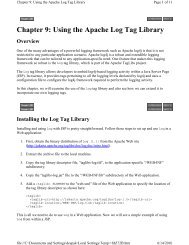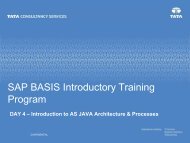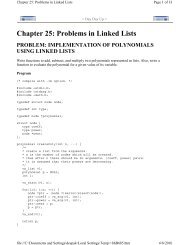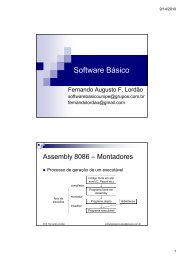- Page 2:
HANDBOOK OF ELECTRICAL INSTALLATION
- Page 5 and 6:
© 2003 by Blackwell Science Ltd, a
- Page 7 and 8:
vi Contents System operation 79 Ide
- Page 9 and 10:
viii Contents Training and systems
- Page 11 and 12:
x Contents 18 Lighting 475 h.r. kin
- Page 14:
Preface My first task as editor is
- Page 17 and 18:
2 Handbook of Electrical Installati
- Page 19 and 20:
4 Handbook of Electrical Installati
- Page 21 and 22:
6 Handbook of Electrical Installati
- Page 23 and 24:
8 Handbook of Electrical Installati
- Page 25 and 26:
10 Handbook of Electrical Installat
- Page 27 and 28:
12 Handbook of Electrical Installat
- Page 29 and 30:
14 Handbook of Electrical Installat
- Page 31 and 32:
16 Handbook of Electrical Installat
- Page 33 and 34:
18 Handbook of Electrical Installat
- Page 35 and 36:
20 Handbook of Electrical Installat
- Page 37 and 38:
22 Handbook of Electrical Installat
- Page 39 and 40:
24 Handbook of Electrical Installat
- Page 41 and 42:
26 Handbook of Electrical Installat
- Page 43 and 44:
28 Handbook of Electrical Installat
- Page 45 and 46:
30 Handbook of Electrical Installat
- Page 47 and 48:
32 Handbook of Electrical Installat
- Page 49 and 50:
34 Handbook of Electrical Installat
- Page 51 and 52:
36 Handbook of Electrical Installat
- Page 53 and 54:
38 Handbook of Electrical Installat
- Page 55 and 56:
40 Handbook of Electrical Installat
- Page 57 and 58:
42 Handbook of Electrical Installat
- Page 59 and 60:
44 Handbook of Electrical Installat
- Page 61 and 62:
46 Handbook of Electrical Installat
- Page 63 and 64:
48 Handbook of Electrical Installat
- Page 65 and 66:
50 Handbook of Electrical Installat
- Page 67 and 68:
52 Handbook of Electrical Installat
- Page 69 and 70:
54 Handbook of Electrical Installat
- Page 71 and 72:
56 Handbook of Electrical Installat
- Page 73 and 74:
58 Handbook of Electrical Installat
- Page 75 and 76:
60 Handbook of Electrical Installat
- Page 77 and 78:
62 Handbook of Electrical Installat
- Page 79 and 80:
64 Handbook of Electrical Installat
- Page 81 and 82:
66 Handbook of Electrical Installat
- Page 83 and 84:
68 Handbook of Electrical Installat
- Page 85 and 86:
70 Handbook of Electrical Installat
- Page 87 and 88:
72 Handbook of Electrical Installat
- Page 89 and 90:
74 Handbook of Electrical Installat
- Page 91 and 92:
76 Handbook of Electrical Installat
- Page 93 and 94:
78 Handbook of Electrical Installat
- Page 95 and 96:
80 Handbook of Electrical Installat
- Page 97 and 98:
82 Handbook of Electrical Installat
- Page 99 and 100:
INTRODUCTION CHAPTER 4 Cable Manage
- Page 101 and 102:
86 Handbook of Electrical Installat
- Page 103 and 104:
88 Handbook of Electrical Installat
- Page 105 and 106:
90 Handbook of Electrical Installat
- Page 107 and 108:
92 Handbook of Electrical Installat
- Page 109 and 110:
94 Handbook of Electrical Installat
- Page 111 and 112:
96 Handbook of Electrical Installat
- Page 113 and 114:
CHAPTER 5 Electricity on Constructi
- Page 115 and 116:
100 Handbook of Electrical Installa
- Page 117 and 118:
102 Handbook of Electrical Installa
- Page 119 and 120:
104 Handbook of Electrical Installa
- Page 121 and 122:
106 Handbook of Electrical Installa
- Page 123 and 124:
108 Handbook of Electrical Installa
- Page 125 and 126:
110 Handbook of Electrical Installa
- Page 127 and 128:
112 Handbook of Electrical Installa
- Page 129 and 130:
114 Handbook of Electrical Installa
- Page 131 and 132:
116 Handbook of Electrical Installa
- Page 133 and 134:
118 Handbook of Electrical Installa
- Page 135 and 136:
120 Handbook of Electrical Installa
- Page 137 and 138:
CHAPTER 6 Standby Power Supplies D.
- Page 139 and 140:
124 Handbook of Electrical Installa
- Page 141 and 142:
126 Handbook of Electrical Installa
- Page 143 and 144:
128 Handbook of Electrical Installa
- Page 145 and 146:
130 Handbook of Electrical Installa
- Page 147 and 148:
132 Handbook of Electrical Installa
- Page 149 and 150:
134 Handbook of Electrical Installa
- Page 151 and 152:
136 Handbook of Electrical Installa
- Page 153 and 154:
138 Handbook of Electrical Installa
- Page 155 and 156:
140 Handbook of Electrical Installa
- Page 157 and 158:
142 Handbook of Electrical Installa
- Page 159 and 160:
144 Handbook of Electrical Installa
- Page 161 and 162:
146 Handbook of Electrical Installa
- Page 163 and 164:
148 Handbook of Electrical Installa
- Page 165 and 166:
150 Handbook of Electrical Installa
- Page 167 and 168:
152 Handbook of Electrical Installa
- Page 169 and 170:
154 Handbook of Electrical Installa
- Page 171 and 172:
156 Handbook of Electrical Installa
- Page 173 and 174:
158 Handbook of Electrical Installa
- Page 175 and 176:
160 Handbook of Electrical Installa
- Page 177 and 178:
INTRODUCTION CHAPTER 7 Ground Earth
- Page 179 and 180:
164 Handbook of Electrical Installa
- Page 181 and 182:
166 Handbook of Electrical Installa
- Page 183 and 184:
168 Handbook of Electrical Installa
- Page 185 and 186:
170 Handbook of Electrical Installa
- Page 187 and 188:
172 Handbook of Electrical Installa
- Page 189 and 190:
174 Handbook of Electrical Installa
- Page 191 and 192:
176 Handbook of Electrical Installa
- Page 193 and 194:
178 Handbook of Electrical Installa
- Page 195 and 196:
INTRODUCTION CHAPTER 8 Cathodic Pro
- Page 197 and 198:
182 Handbook of Electrical Installa
- Page 199 and 200:
184 Handbook of Electrical Installa
- Page 201 and 202:
186 Handbook of Electrical Installa
- Page 203 and 204:
188 Handbook of Electrical Installa
- Page 205 and 206:
190 Handbook of Electrical Installa
- Page 207 and 208:
192 Handbook of Electrical Installa
- Page 209 and 210:
194 Handbook of Electrical Installa
- Page 211 and 212:
196 Handbook of Electrical Installa
- Page 213 and 214:
198 Handbook of Electrical Installa
- Page 215 and 216:
200 Handbook of Electrical Installa
- Page 217 and 218:
202 Handbook of Electrical Installa
- Page 219 and 220:
204 Handbook of Electrical Installa
- Page 221 and 222:
206 Handbook of Electrical Installa
- Page 223 and 224:
208 Handbook of Electrical Installa
- Page 225 and 226:
210 Handbook of Electrical Installa
- Page 227 and 228: 212 Handbook of Electrical Installa
- Page 229 and 230: 214 Handbook of Electrical Installa
- Page 231 and 232: 216 Handbook of Electrical Installa
- Page 233 and 234: 218 Handbook of Electrical Installa
- Page 235 and 236: 220 Handbook of Electrical Installa
- Page 237 and 238: 222 Handbook of Electrical Installa
- Page 239 and 240: 224 Handbook of Electrical Installa
- Page 241 and 242: 226 Handbook of Electrical Installa
- Page 243 and 244: 228 Handbook of Electrical Installa
- Page 245 and 246: 230 Handbook of Electrical Installa
- Page 247 and 248: 232 Handbook of Electrical Installa
- Page 249 and 250: 234 Handbook of Electrical Installa
- Page 251 and 252: 236 Handbook of Electrical Installa
- Page 253 and 254: 238 Handbook of Electrical Installa
- Page 255 and 256: 240 Handbook of Electrical Installa
- Page 257 and 258: 242 Handbook of Electrical Installa
- Page 259 and 260: 244 Handbook of Electrical Installa
- Page 261 and 262: 246 Handbook of Electrical Installa
- Page 263 and 264: CHAPTER 10 Special Installations or
- Page 265 and 266: 250 Handbook of Electrical Installa
- Page 267 and 268: 252 Handbook of Electrical Installa
- Page 269 and 270: 254 Handbook of Electrical Installa
- Page 271 and 272: 256 Handbook of Electrical Installa
- Page 273 and 274: 258 Handbook of Electrical Installa
- Page 275 and 276: 260 Handbook of Electrical Installa
- Page 277: 262 Handbook of Electrical Installa
- Page 281 and 282: 266 Handbook of Electrical Installa
- Page 283 and 284: 268 Handbook of Electrical Installa
- Page 285 and 286: 270 Handbook of Electrical Installa
- Page 287 and 288: 272 Handbook of Electrical Installa
- Page 289 and 290: 274 Handbook of Electrical Installa
- Page 291 and 292: 276 Handbook of Electrical Installa
- Page 293 and 294: 278 Handbook of Electrical Installa
- Page 295 and 296: 280 Handbook of Electrical Installa
- Page 297 and 298: 282 Handbook of Electrical Installa
- Page 299 and 300: 284 Handbook of Electrical Installa
- Page 301 and 302: 286 Handbook of Electrical Installa
- Page 303 and 304: 288 Handbook of Electrical Installa
- Page 305 and 306: 290 Handbook of Electrical Installa
- Page 307 and 308: 292 Handbook of Electrical Installa
- Page 309 and 310: 294 Handbook of Electrical Installa
- Page 311 and 312: 296 Handbook of Electrical Installa
- Page 313 and 314: 298 Handbook of Electrical Installa
- Page 315 and 316: 300 Handbook of Electrical Installa
- Page 317 and 318: 302 Handbook of Electrical Installa
- Page 319 and 320: CHAPTER 12 Standards, Specification
- Page 321 and 322: 306 Handbook of Electrical Installa
- Page 323 and 324: 308 Handbook of Electrical Installa
- Page 325 and 326: 310 Handbook of Electrical Installa
- Page 327 and 328: 312 Handbook of Electrical Installa
- Page 329 and 330:
314 Handbook of Electrical Installa
- Page 331 and 332:
316 Handbook of Electrical Installa
- Page 333 and 334:
CHAPTER 13 Distribution Transformer
- Page 335 and 336:
320 Handbook of Electrical Installa
- Page 337 and 338:
322 Handbook of Electrical Installa
- Page 339 and 340:
324 Handbook of Electrical Installa
- Page 341 and 342:
326 Handbook of Electrical Installa
- Page 343 and 344:
328 Handbook of Electrical Installa
- Page 345 and 346:
330 Handbook of Electrical Installa
- Page 347 and 348:
332 Handbook of Electrical Installa
- Page 349 and 350:
334 Handbook of Electrical Installa
- Page 351 and 352:
336 Handbook of Electrical Installa
- Page 353 and 354:
338 Handbook of Electrical Installa
- Page 355 and 356:
340 Handbook of Electrical Installa
- Page 357 and 358:
342 Handbook of Electrical Installa
- Page 359 and 360:
344 Handbook of Electrical Installa
- Page 361 and 362:
346 Handbook of Electrical Installa
- Page 363 and 364:
348 Handbook of Electrical Installa
- Page 365 and 366:
350 Handbook of Electrical Installa
- Page 367 and 368:
352 Handbook of Electrical Installa
- Page 369 and 370:
354 Handbook of Electrical Installa
- Page 371 and 372:
356 Handbook of Electrical Installa
- Page 373 and 374:
DEFINITIONS CHAPTER 14 Switchgear A
- Page 375 and 376:
360 Handbook of Electrical Installa
- Page 377 and 378:
362 Handbook of Electrical Installa
- Page 379 and 380:
364 Handbook of Electrical Installa
- Page 381 and 382:
366 Handbook of Electrical Installa
- Page 383 and 384:
368 Handbook of Electrical Installa
- Page 385 and 386:
370 Handbook of Electrical Installa
- Page 387 and 388:
372 Handbook of Electrical Installa
- Page 389 and 390:
Table 14.1 (contd) 374 Handbook of
- Page 391 and 392:
Table 14.1 (contd) 376 Handbook of
- Page 393 and 394:
Table 14.1 (contd) 378 Handbook of
- Page 395 and 396:
380 Handbook of Electrical Installa
- Page 397 and 398:
382 Handbook of Electrical Installa
- Page 399 and 400:
384 Handbook of Electrical Installa
- Page 401 and 402:
386 Handbook of Electrical Installa
- Page 403 and 404:
388 Handbook of Electrical Installa
- Page 405 and 406:
390 Handbook of Electrical Installa
- Page 407 and 408:
392 Handbook of Electrical Installa
- Page 409 and 410:
CHAPTER 15 Rotating Machines D.B. M
- Page 411 and 412:
396 Handbook of Electrical Installa
- Page 413 and 414:
398 Handbook of Electrical Installa
- Page 415 and 416:
400 Handbook of Electrical Installa
- Page 417 and 418:
402 Handbook of Electrical Installa
- Page 419 and 420:
404 Handbook of Electrical Installa
- Page 421 and 422:
406 Handbook of Electrical Installa
- Page 423 and 424:
408 Handbook of Electrical Installa
- Page 425 and 426:
410 Handbook of Electrical Installa
- Page 427 and 428:
412 Handbook of Electrical Installa
- Page 429 and 430:
414 Handbook of Electrical Installa
- Page 431 and 432:
416 Handbook of Electrical Installa
- Page 433 and 434:
418 Handbook of Electrical Installa
- Page 435 and 436:
420 Handbook of Electrical Installa
- Page 437 and 438:
422 Handbook of Electrical Installa
- Page 439 and 440:
424 Handbook of Electrical Installa
- Page 441 and 442:
426 Handbook of Electrical Installa
- Page 443 and 444:
428 Handbook of Electrical Installa
- Page 445 and 446:
430 Handbook of Electrical Installa
- Page 447 and 448:
432 Handbook of Electrical Installa
- Page 449 and 450:
434 Handbook of Electrical Installa
- Page 451 and 452:
436 Handbook of Electrical Installa
- Page 453 and 454:
438 Handbook of Electrical Installa
- Page 455 and 456:
440 Handbook of Electrical Installa
- Page 457 and 458:
442 Handbook of Electrical Installa
- Page 459 and 460:
444 Handbook of Electrical Installa
- Page 461 and 462:
446 Handbook of Electrical Installa
- Page 463 and 464:
448 Handbook of Electrical Installa
- Page 465 and 466:
450 Handbook of Electrical Installa
- Page 467 and 468:
452 Handbook of Electrical Installa
- Page 469 and 470:
454 Handbook of Electrical Installa
- Page 471 and 472:
456 Handbook of Electrical Installa
- Page 473 and 474:
458 Handbook of Electrical Installa
- Page 475 and 476:
460 Handbook of Electrical Installa
- Page 477 and 478:
462 Handbook of Electrical Installa
- Page 479 and 480:
464 Handbook of Electrical Installa
- Page 481 and 482:
466 Handbook of Electrical Installa
- Page 483 and 484:
468 Handbook of Electrical Installa
- Page 485 and 486:
470 Handbook of Electrical Installa
- Page 487 and 488:
472 Handbook of Electrical Installa
- Page 489 and 490:
474 Handbook of Electrical Installa
- Page 491 and 492:
476 Handbook of Electrical Installa
- Page 493 and 494:
478 Handbook of Electrical Installa
- Page 495 and 496:
480 Handbook of Electrical Installa
- Page 497 and 498:
482 Handbook of Electrical Installa
- Page 499 and 500:
484 Handbook of Electrical Installa
- Page 501 and 502:
486 Handbook of Electrical Installa
- Page 503 and 504:
488 Handbook of Electrical Installa
- Page 505 and 506:
490 Handbook of Electrical Installa
- Page 507 and 508:
492 Handbook of Electrical Installa
- Page 509 and 510:
494 Handbook of Electrical Installa
- Page 511 and 512:
496 Handbook of Electrical Installa
- Page 513 and 514:
498 Handbook of Electrical Installa
- Page 515 and 516:
500 Handbook of Electrical Installa
- Page 517 and 518:
CHAPTER 19 Mains Cables G.A. Bowie,
- Page 519 and 520:
504 Handbook of Electrical Installa
- Page 521 and 522:
506 Handbook of Electrical Installa
- Page 523 and 524:
508 Handbook of Electrical Installa
- Page 525 and 526:
510 Handbook of Electrical Installa
- Page 527 and 528:
512 Handbook of Electrical Installa
- Page 529 and 530:
514 Handbook of Electrical Installa
- Page 531 and 532:
516 Handbook of Electrical Installa
- Page 533 and 534:
518 Handbook of Electrical Installa
- Page 535 and 536:
520 Handbook of Electrical Installa
- Page 537 and 538:
522 Handbook of Electrical Installa
- Page 539 and 540:
524 Handbook of Electrical Installa
- Page 541 and 542:
526 Handbook of Electrical Installa
- Page 543 and 544:
528 Handbook of Electrical Installa
- Page 545 and 546:
530 Handbook of Electrical Installa
- Page 547 and 548:
532 Handbook of Electrical Installa
- Page 549 and 550:
Table 20.1 (contd) 534 Handbook of
- Page 551 and 552:
536 Handbook of Electrical Installa
- Page 553 and 554:
538 Handbook of Electrical Installa
- Page 555 and 556:
540 Handbook of Electrical Installa
- Page 557 and 558:
542 Handbook of Electrical Installa
- Page 559 and 560:
544 Handbook of Electrical Installa
- Page 561 and 562:
546 Handbook of Electrical Installa
- Page 563 and 564:
548 Handbook of Electrical Installa
- Page 565 and 566:
550 Handbook of Electrical Installa
- Page 567 and 568:
552 Handbook of Electrical Installa
- Page 569 and 570:
554 Handbook of Electrical Installa
- Page 571 and 572:
556 Handbook of Electrical Installa
- Page 573 and 574:
558 Handbook of Electrical Installa
- Page 575 and 576:
560 Handbook of Electrical Installa
- Page 577 and 578:
562 Handbook of Electrical Installa
- Page 579 and 580:
564 Handbook of Electrical Installa
- Page 581 and 582:
566 Handbook of Electrical Installa
- Page 583 and 584:
568 Handbook of Electrical Installa
- Page 585 and 586:
570 Handbook of Electrical Installa
- Page 587 and 588:
572 Handbook of Electrical Installa
- Page 589 and 590:
574 Handbook of Electrical Installa
- Page 591 and 592:
576 Handbook of Electrical Installa
- Page 593 and 594:
578 Handbook of Electrical Installa
- Page 595 and 596:
580 Handbook of Electrical Installa
- Page 597 and 598:
582 Handbook of Electrical Installa
- Page 599 and 600:
584 Handbook of Electrical Installa
- Page 601 and 602:
586 Handbook of Electrical Installa
- Page 603 and 604:
588 Handbook of Electrical Installa
- Page 605 and 606:
590 Handbook of Electrical Installa
- Page 607 and 608:
592 Handbook of Electrical Installa
- Page 609 and 610:
594 Handbook of Electrical Installa
- Page 611 and 612:
596 Handbook of Electrical Installa
- Page 613 and 614:
598 Handbook of Electrical Installa
- Page 615 and 616:
600 Handbook of Electrical Installa
- Page 617 and 618:
602 Handbook of Electrical Installa
- Page 619 and 620:
604 Handbook of Electrical Installa
- Page 621 and 622:
606 Handbook of Electrical Installa
- Page 623 and 624:
608 Handbook of Electrical Installa
- Page 625 and 626:
610 Handbook of Electrical Installa
- Page 627 and 628:
612 Handbook of Electrical Installa
- Page 629 and 630:
614 Handbook of Electrical Installa
- Page 631 and 632:
616 Handbook of Electrical Installa
- Page 633 and 634:
618 Handbook of Electrical Installa
- Page 635 and 636:
620 Handbook of Electrical Installa
- Page 637 and 638:
622 Handbook of Electrical Installa
- Page 639 and 640:
624 Handbook of Electrical Installa
- Page 641 and 642:
626 Handbook of Electrical Installa
- Page 643 and 644:
628 Handbook of Electrical Installa
- Page 645 and 646:
630 Handbook of Electrical Installa
- Page 647 and 648:
632 Handbook of Electrical Installa
- Page 649 and 650:
634 Handbook of Electrical Installa
- Page 651 and 652:
636 Handbook of Electrical Installa
- Page 653 and 654:
638 Handbook of Electrical Installa
- Page 655 and 656:
640 Handbook of Electrical Installa
- Page 657 and 658:
642 Handbook of Electrical Installa
- Page 659 and 660:
644 Handbook of Electrical Installa
- Page 661 and 662:
646 Handbook of Electrical Installa
- Page 663 and 664:
648 Handbook of Electrical Installa
- Page 665 and 666:
650 Handbook of Electrical Installa
- Page 667 and 668:
652 Handbook of Electrical Installa
- Page 669 and 670:
654 Handbook of Electrical Installa
- Page 671 and 672:
656 Handbook of Electrical Installa
- Page 673 and 674:
658 Handbook of Electrical Installa
- Page 675 and 676:
APPENDIX I Main Authoritative Docum
- Page 677 and 678:
662 Handbook of Electrical Installa
- Page 679 and 680:
664 Handbook of Electrical Installa
- Page 681 and 682:
666 Handbook of Electrical Installa
- Page 683 and 684:
668 Handbook of Electrical Installa
- Page 685 and 686:
670 Index oil, 364, 366 oil filling
- Page 687 and 688:
672 Index earthing, 234 earth termi
- Page 689:
674 Index swimming pools, 252 switc


